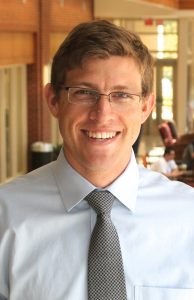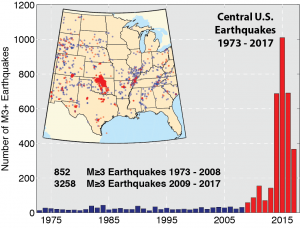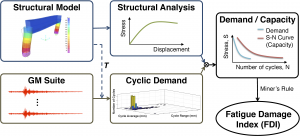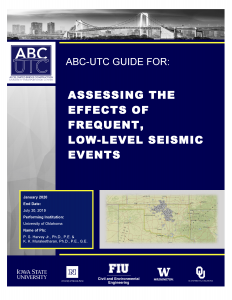April 30, 2020 1:00 pm
In this quarterly Research Seminar, Scott Harvey, Ph.D., P.E., Principal Investigator; and Sumangali Sivakumaran, M.S. Student, present work under the ABC-UTC research project entitled Rapid Retrofitting Techniques for Induced Earthquakes – Phase I conducted at the University of Oklahoma.
Research Seminar Documents:
Rapid Retrofitting Techniques for Induced Earthquakes – Phase I - pdf of presentation
Q&A Session - pdf
Description: In recent years, a dramatic increase in the number of earthquakes in the central U.S. has occurred due to induced seismicity. In this seminar, a framework for assessing the potential for cumulative damage on bridges due to a large number of small-to-moderate induced earthquakes is presented. The method is based on rainflow counting per the American Society for Testing and Materials (ASTM) standard practice for cycle counting in fatigue. A quantitative measure – Fatigue Damage Index (FDI) – is proposed and developed using Miner’s Rule to identify the accumulated damage in the bridge, from which the remaining service life can be estimated. The FDI can also be used to predict when accelerated repairs may be required and to evaluate accelerated retrofit solutions.
Presenters:
Scott Harvey, Ph.D., P.E.
Assistant Professor
School of Civil Engineering and Environmental Science
University of Oklahoma
Sumangali Sivakumaran, M.S. Student
(M.S., December 2019)
School of Civil Engineering and Environmental Science
University of Oklahoma
Presentation Graphics:
Figure 1. Number of earthquakes with a magnitude 3.0 or larger in the central United States
Figure 2. Fatigue Damage Index (FDI) framework for assessing for cumulative damage
Figure 3. ABC-UTC Guide for Assessing the Effects of Frequency, Low-Level Seismic Events
